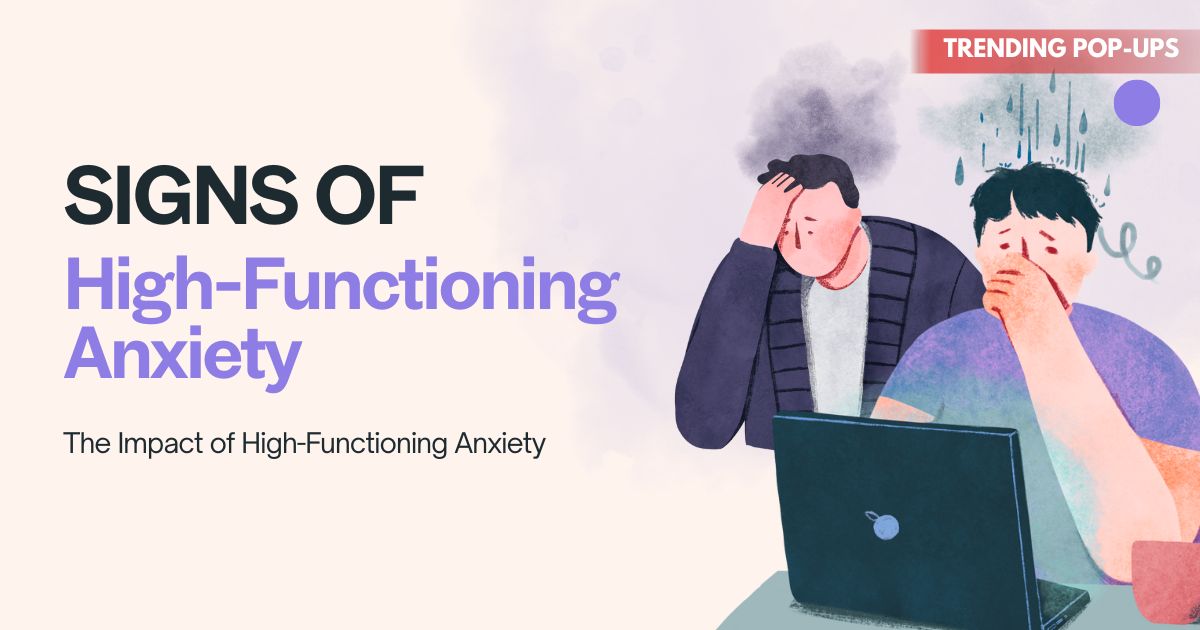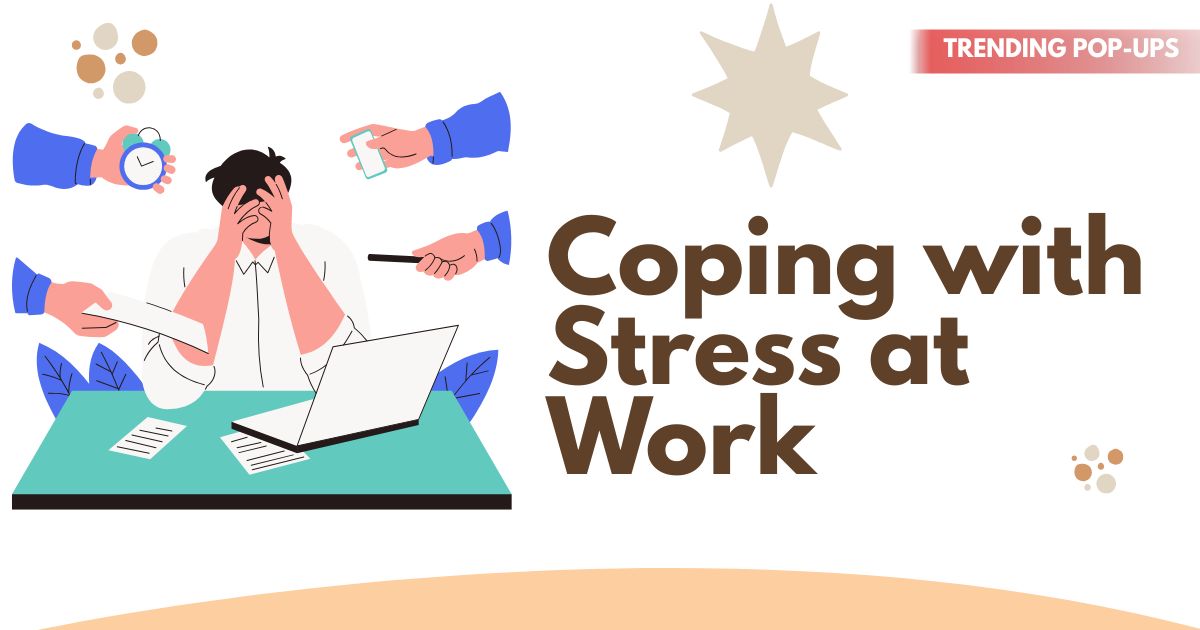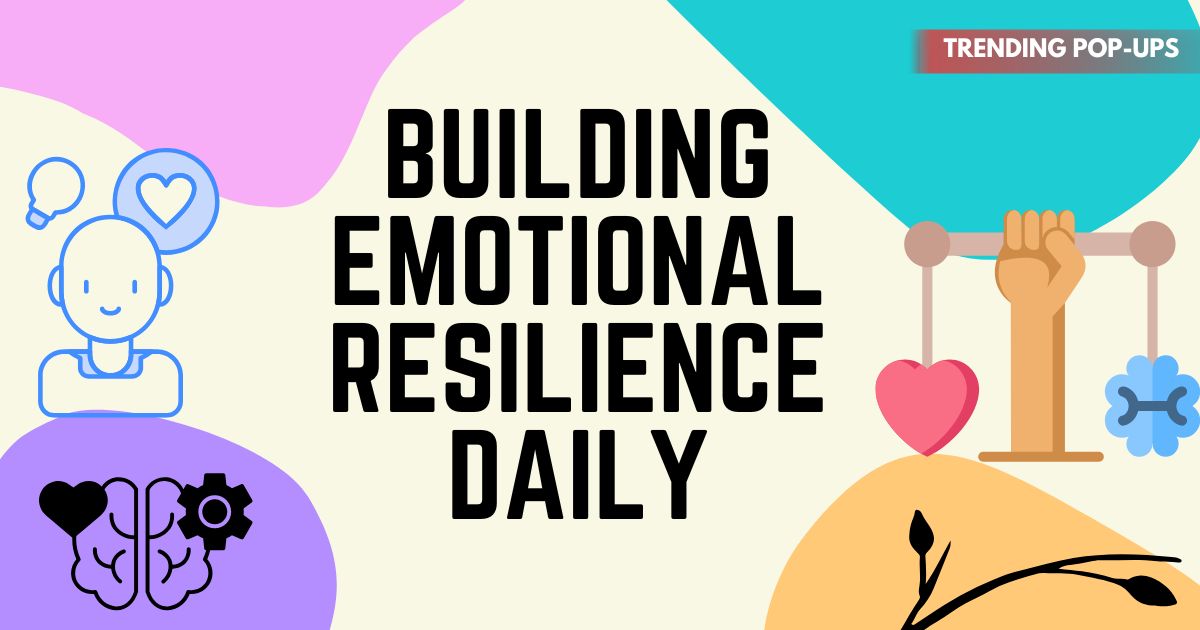Anxiety is often associated with visible distress, panic attacks, or social withdrawal. However, many individuals with high-functioning anxiety appear outwardly successful, organized, and composed, while internally struggling with chronic worry, tension, and overthinking. Understanding the subtle signs of high-functioning anxiety is crucial for early recognition, self-awareness, and seeking appropriate coping strategies.
What is High-Functioning Anxiety?
High-functioning anxiety (HFA) is not an official diagnosis in the DSM-5, but it describes a pattern of anxiety symptoms in individuals who continue to perform well in their personal and professional lives. Unlike generalized anxiety disorder (GAD), HFA often goes unnoticed because sufferers may mask their anxiety through perfectionism, overachievement, and controlling behaviors.
Key characteristics of high-functioning anxiety include:
-
Persistent worry and stress despite outward success
-
Perfectionist tendencies and fear of failure
-
Difficulty relaxing or disconnecting from work or responsibilities
While these individuals may excel professionally or academically, the mental and emotional toll of constant anxiety can lead to burnout, insomnia, and decreased overall well-being.
Common Signs of High-Functioning Anxiety
Identifying high-functioning anxiety can be challenging because the symptoms are often subtle or masked by outward success. Here are the most common signs:
1. Chronic Worry and Overthinking
People with HFA often dwell on future events, replay past interactions, or obsess over details. Even minor issues can trigger disproportionate concern, creating a constant internal dialogue of “what-ifs.”
2. Perfectionism and Fear of Failure
A hallmark of high-functioning anxiety is the relentless pursuit of perfection. Individuals may set unrealistic standards for themselves and feel intense pressure to meet them, often leading to procrastination or self-criticism.
3. Difficulty Saying No
High-functioning anxious individuals tend to take on excessive responsibilities to please others or avoid conflict. This can result in overwhelm, stress, and difficulty maintaining boundaries.
4. Restlessness and Physical Tension
Even when appearing calm, the body may display signs of stress, including:
-
Muscle tension
-
Headaches
-
Jaw clenching
-
Rapid heartbeat
These symptoms often persist unnoticed by friends, family, or colleagues.
5. Trouble Relaxing or Sleeping
HFA can make it challenging to unwind, leading to insomnia or poor-quality sleep. Racing thoughts, worry about unfinished tasks, or planning for the future often keep the mind active long after the day ends.
6. People-Pleasing Behavior
Many individuals with high-functioning anxiety prioritize others’ needs above their own. They may seek external validation, avoid confrontation, and struggle to assert themselves even when stressed or overwhelmed.
7. Over-Achievement and Over-Preparation
High-functioning anxiety can manifest as constant striving for success. Over-preparing for work presentations, exams, or social events is common, as it temporarily alleviates anxiety but contributes to exhaustion.
8. Avoidance of Certain Situations
Despite outward confidence, HFA may cause avoidance of social or professional situations that trigger anxiety. This can include public speaking, networking events, or even casual social gatherings.
9. Self-Criticism and Negative Self-Talk
High-functioning anxious individuals are often highly self-critical, focusing on perceived mistakes and shortcomings rather than achievements. This internal dialogue reinforces anxiety and prevents emotional relief.
10. Emotional Suppression
People with HFA often hide feelings of fear, stress, or sadness to maintain a composed exterior. This suppression can lead to emotional burnout, irritability, or sudden outbursts in private settings.
The Impact of High-Functioning Anxiety
Even though individuals with HFA may appear successful, the internal strain can significantly affect mental, emotional, and physical health:
-
Mental Health: Chronic anxiety can increase the risk of depression, panic attacks, and cognitive fatigue.
-
Physical Health: Persistent stress contributes to headaches, digestive issues, high blood pressure, and sleep disturbances.
-
Social Health: Difficulty expressing emotions or setting boundaries can strain relationships and lead to social isolation.
-
Professional Health: Overwork and perfectionism may result in burnout, reduced productivity, and job dissatisfaction.
Recognizing these impacts early is crucial to prevent long-term consequences.
Coping Strategies for High-Functioning Anxiety
Managing high-functioning anxiety involves a combination of self-care practices, therapy, and lifestyle adjustments.
1. Mindfulness and Meditation
Mindfulness exercises help redirect attention from racing thoughts and cultivate presence, reducing anxiety and improving emotional regulation.
2. Cognitive Behavioral Therapy (CBT)
CBT is highly effective in identifying negative thought patterns, challenging perfectionism, and developing healthier coping mechanisms.
3. Regular Exercise
Physical activity reduces cortisol levels, releases endorphins, and improves sleep quality. Activities like yoga, walking, or swimming can be particularly beneficial.
4. Setting Boundaries
Learning to say no and prioritizing personal needs prevents overwhelm and fosters healthier relationships.
5. Journaling
Writing down worries or emotions provides clarity, releases mental tension, and promotes self-reflection.
6. Support Systems
Talking to friends, family, or support groups helps reduce feelings of isolation and provides emotional validation.
7. Professional Help
A licensed therapist or counselor can provide targeted interventions for anxiety management, stress reduction, and emotional resilience.
Conclusion
High-functioning anxiety is often overlooked because it hides behind productivity, success, and outward calm. Recognizing the signs—including chronic worry, perfectionism, difficulty relaxing, and emotional suppression—is essential for early intervention and effective coping. By adopting mindfulness practices, therapy, healthy lifestyle habits, and supportive social networks, individuals with high-functioning anxiety can manage symptoms, reduce stress, and maintain emotional well-being without sacrificing their performance or personal goals.
Also Read : Top 10 Foods That Strengthen Your Immune System
FAQs
1. Can someone have anxiety and still be successful?
Yes. High-functioning anxiety often appears in individuals who are outwardly successful while internally struggling with stress and worry.
2. How is high-functioning anxiety different from regular anxiety?
The main difference is that people with HFA can maintain daily responsibilities and appear composed, while regular anxiety may significantly interfere with functioning.
3. Can high-functioning anxiety lead to burnout?
Yes. Chronic overthinking, perfectionism, and overcommitment can lead to emotional and physical exhaustion.
4. Is medication necessary for high-functioning anxiety?
Not always. While therapy and lifestyle changes are often effective, some individuals may benefit from medication under professional guidance.
5. How can I help a loved one with high-functioning anxiety?
Offer empathy, avoid judgment, encourage professional support, and create a safe space for them to express their feelings.



